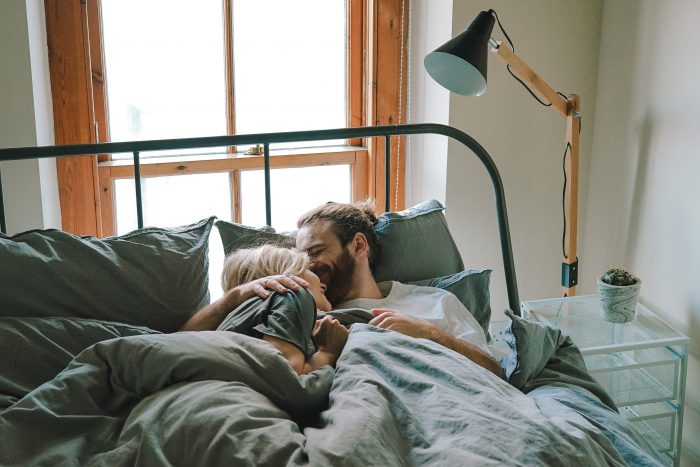A recent study done by the Centers for Disease Control and Prevention (CDC) shows that more than a third of American adults are not getting enough sleep on a regular basis. In fact, as the study shows, sleeping less than seven hours per day is associated with an increased risk of developing chronic conditions such as obesity, diabetes, high blood pressure, heart disease, stroke, and frequent mental distress. Knowing you need a good night of sleep and actually getting better sleep are two different things. Here are five natural remedies that can help you get better sleep.
1. Focus on Self-Care Through Meditation
Self-care is an essential practice, not only for your own well-being but for those around us. Often, the stresses and pressures we put on ourselves to finish our daily to-do lists can impact our lives and reduce our sleep. By ensuring we get the sleep we need, we can, in turn, be better for those around us. Start by implementing meditation into your evening routine. Regular meditation may help to promote sleep by slowing breathing and reducing stress hormones. Start 20 minutes before falling sleep by visualizing a relaxing scene and involving all your senses. Try this for a week to see if you can fall asleep easier.
2. Modify Lifestyle Habits
There are some poor lifestyle habits and patterns many of us fall into. One of the biggest is related to our reliance on technology and electronic devices. Remove all electronic devices such as TVs, computers, smartphones, and tablets from the bedroom to remove the temptation to scroll mindlessly late into the evening. Consider your routines and daily rituals. Set a consistent bedtime and wake time every day, including on the weekends.
Additionally, make sure your bedroom is quiet, dark, relaxing, and set at a comfortable temperature. Remove all distractions that may keep you up, including rattling appliances, faulty lights, and clutter. If you find your home heating and cooling unit isn’t functioning to maintain a comfortable sleeping temperature, get this fixed as soon as possible to enjoy a better night’s sleep.
3. Add Daily Exercise
Being physically active during the day can help you fall asleep more easily at night. Incorporate an evening walk after work or schedule a morning workout to get your heart pumping and jump-start your day. If external motivators will get you in an exercise mindset, sign up for a local yoga class. Preliminary studies show yoga may be helpful for insomnia by focusing on relaxation and breathing.
4. Examine Your Diet
The foods we consume can have an impact on our sleep. Limit your intake of caffeine, alcohol, and nicotine. Avoid caffeine after certain times in the afternoon as it will impact your ability to fall asleep. While many think alcohol can help you relax, it has been proven to result in nighttime wakefulness, so limit the intake to a moderate amount. You may also want to avoid sugar as it causes uneven blood sugar levels and results in restless sleep.
5. Limit Light Exposure
If these daily habit changes haven’t helped with improving your sleep, you may want to consider light exposure therapy. Light exposure plays a key role in telling the body when to go to sleep by increasing melatonin production. A walk outdoors first thing in the morning or light therapy for 30 minutes may help. If you find you’re waking too early in the morning, you may need more light late in the afternoon and could try taking a walk outdoors or light therapy for two to three hours in the evening.
These natural steps may help improve your sleep, impact your daily mood, and provide overall long-term health benefits.












Read 0 comments and reply